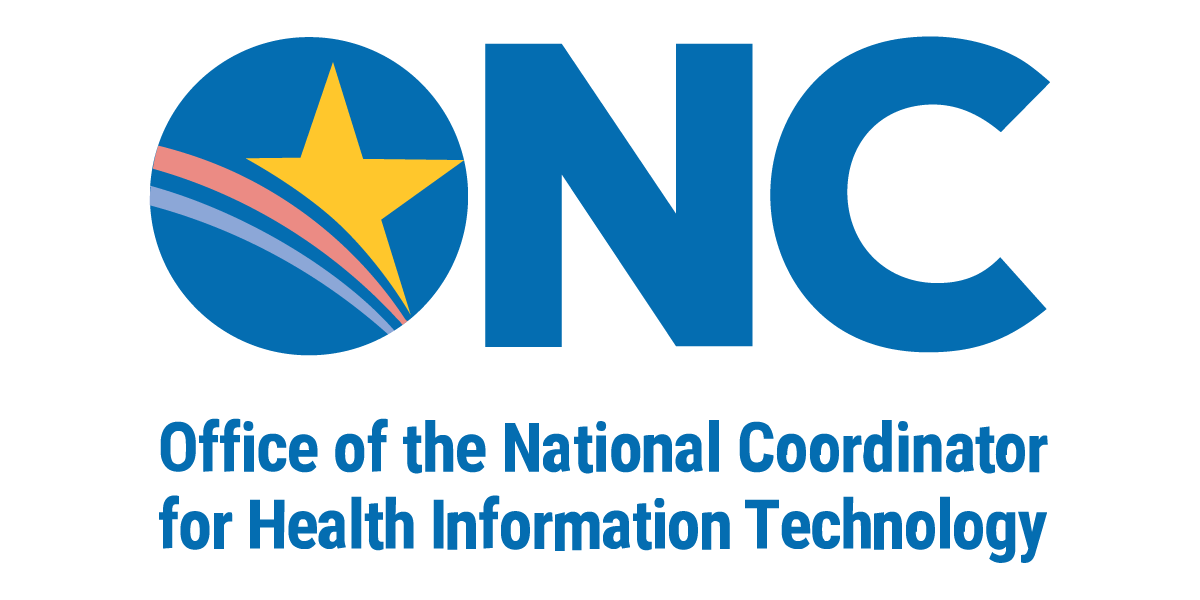High data quality is essential to every aspect of healthcare, research and epidemiology, public health reporting, and realizing the potential of health IT, and is a key ingredient to data aggregation, linkage and interoperability. It is accessible, usable, and actionable, whereas low data quality, such as duplicate patient records or obsolete information creates barriers to care delivery, research insights, and leads to higher costs and inefficiencies.
This symposium will review actionable data quality standards, assessment frameworks, metrics, and real-life challenges and success stories. Symposium attendees will gain knowledge and access to best practices and available solutions that they may apply in their everyday work.
New in 2023 – The ONC Tech Forum is back in 2023, although with a slightly different look. Instead of a single event, ONC will now host Tech Forum workshops throughout the year, giving you multiple opportunities to learn about how we can advance health technology to improve patient care, health equity, data exchange, and interoperability
Session
Welcome, opening presentation
- Steve Posnack, Deputy National Coordinator, ONC
Perspectives: Standards and Implementation
ISO 8000 The International Standard for Data Quality
This presentation will provide an overview of the ISO 8000 with a discussion on the principles and characteristics of data quality as well as implications of data quality and processes to ensure high quality data.
ISO 8000 is the international standard for data quality that is concerned with principles of data quality, characteristics of data that determine its quality, frameworks for data quality, and processes to ensure data quality.
- Peter Benson, Founding and Executive Director of the Electronic Commerce Code Management Association (ECCMA), ISO-8000 Project Leader
Data Usability Implementation Guide
This presentation will provide an overview of the Data Usability Implementation Guide and will include specific priority use cases that can be readily adopted to improve the usability of data received by end users within their workflows. The presentation will touch on how data quality is impacted by multiple dimensions including settings, timeliness, completeness, clinical context, provenance, and semantics. Finally we will discuss how these dimensions can enable receiving systems to more directly incorporate shared data into the workflow of a clinician and make it more computable and actionable.
The Sequoia Project is a non-profit 501c3 chartered to advance implementation of secure, interoperable nationwide health information exchange. An independent and neutral advocate for interoperability, The Sequoia Project supports multiple, independent health IT interoperability initiatives.
- Didi Davis, Vice President, Informatics, Conformance & Interoperability, The Sequoia Group
USCDI Data Quality Assessment
This presentation will provide clinician and health information network (HIN) perspective on the critical need for quality data to support safe and effective care. Dr. Lane will describe work done in conjunction with Clinical Architecture to develop a data quality assessment, quantification and mitigation methodology that is focused on USCDI data elements. The presentation will include a preview into some of these analysis and exploratory work based on real world data from the Health Gorilla data platform.
Health Gorilla is an interoperability platform providing permitted access to actionable patient data. Customers use Health Gorilla to improve outcomes, streamline workflows, and create a more equitable healthcare ecosystem.
- Steven Lane, MD. MPH, Chief Medical Officer, Health Gorilla
Break
Perspective: Real World Observations and Best Practices
Measuring Data Quality in Healthcare
This presentation will discuss the application of a healthcare data quality taxonomy in combination with the USCDI v4 criteria to measure and assess the quality of real healthcare data.
Clinical Architecture provides innovative healthcare IT solutions focused on the quality and usability of clinical information. Clinical Architecture products provide the tools to normalize data, create an audit trail, leverage unstructured text, and automate clinical data management to ensure sound, reliable data from clinical trials.
- Charlie Harp, CEO, Clinical Architecture
AHIMA Data Quality
This presentation will include an overview of AHIMA’s Naming Policy Framework 2023 and the Texas Health Service’s Authority efforts on improving the content of the Discharge Summary C-CDA. The Texas Health Services Authority facilitates a vendor agnostic multidisciplinary stakeholder collaborative that works to break down the barriers to safe, secure exchange of clinical information.
AHIMA is a professional organization with ~80K members with extensive knowledge and expertise with health information. AHIMA’s Policies on Data Quality and Integrity state that data should be complete, accurate, consistent and timely throughout its life cycle.
- Katherine Lusk, MHSM, RHIA, FAHIMA, Vice President, Strategic Partnerships Texas Health Services Authority
Veteran’s Health Information Exchange (VHIE)
This presentation will include an overview of the Clinical Data Quality Management Team’s work, including a walk through on the complex analytics and scoring across vendors, partners, and Health Information Exchanges (HIEs). It will also discuss opportunities to improve clinical data quality at the source, based on comprehensive analytics, and develops metrics focused on value added clinical content needs.
The Veterans Health Information Exchange (VHIE) has a unique perspective as the nation’s largest continuous surveillance monitoring program of clinical production data.
- Sandi Mitchell, VHIE Clinical Data Quality Management Team Lead Veterans Health Information Exchange
Break
Panel Discussion
John D’Amore will lead a discussion with the symposium presenters.
John D’Amore is currently the owner of More Informatics, a company dedicated to the development and implementation of health IT solutions to improve care quality and efficiency. John has published leading, peer-reviewed research on interoperability best practices, quality measurement and population health. He has presented at national forums (AMIA, NCQA, HIMSS, SHIEC) on how information technology can improve patient care.
- John D’Amore Moderator



